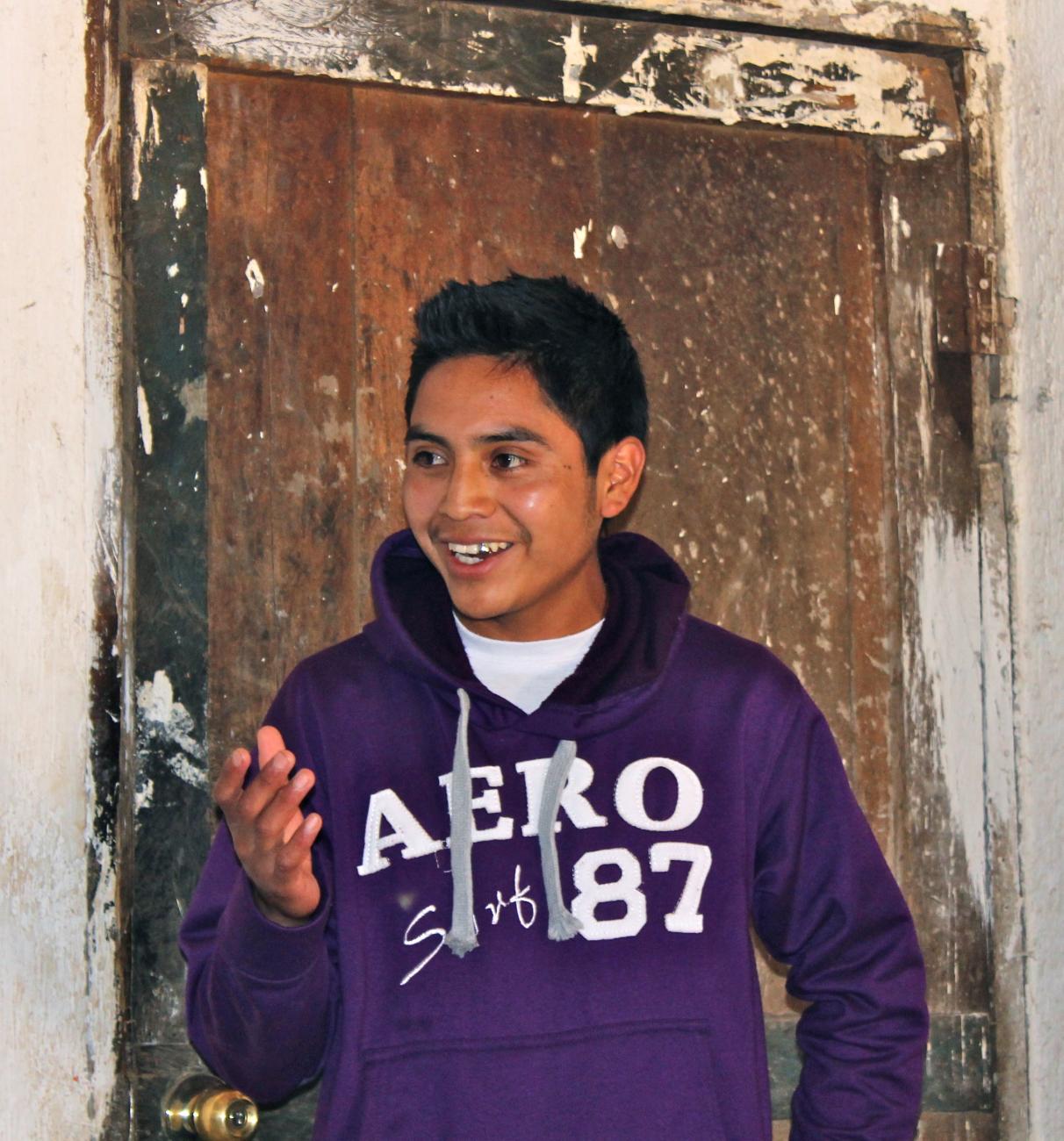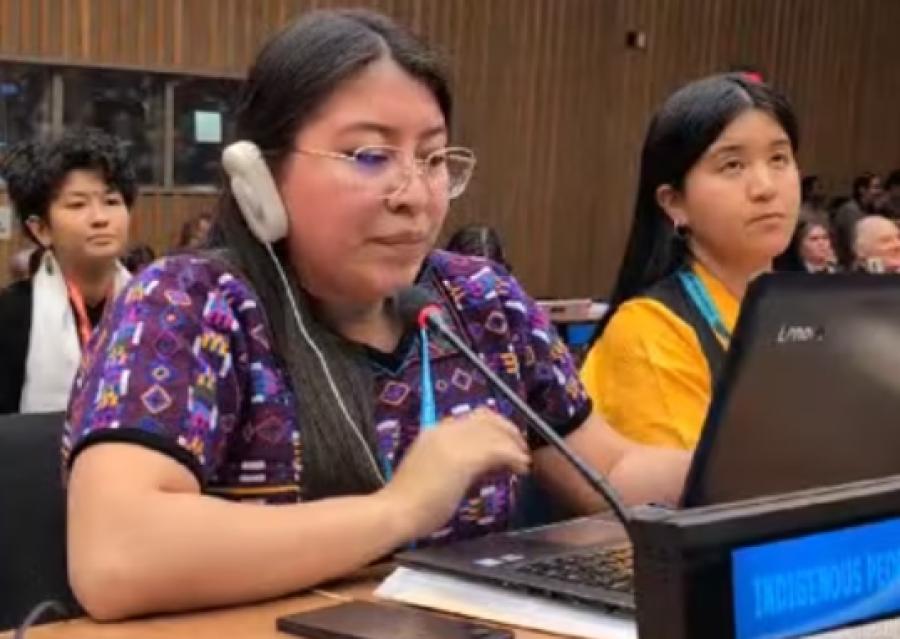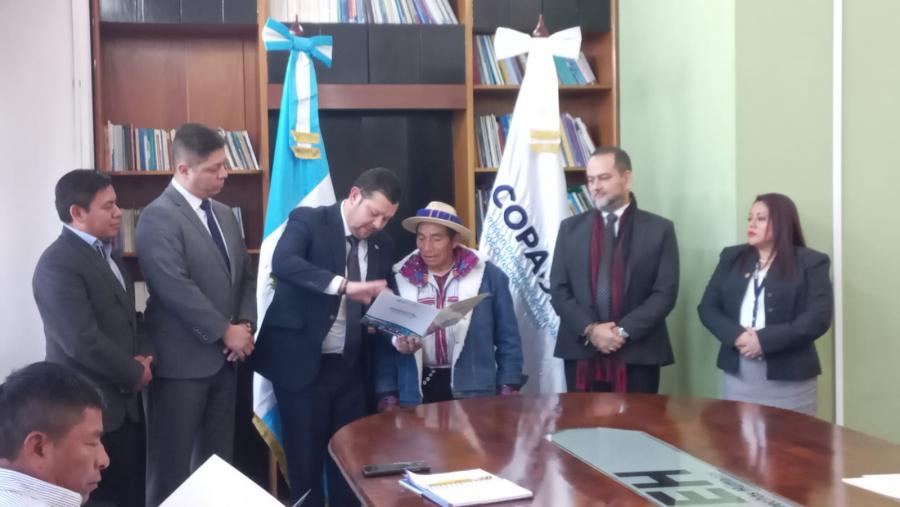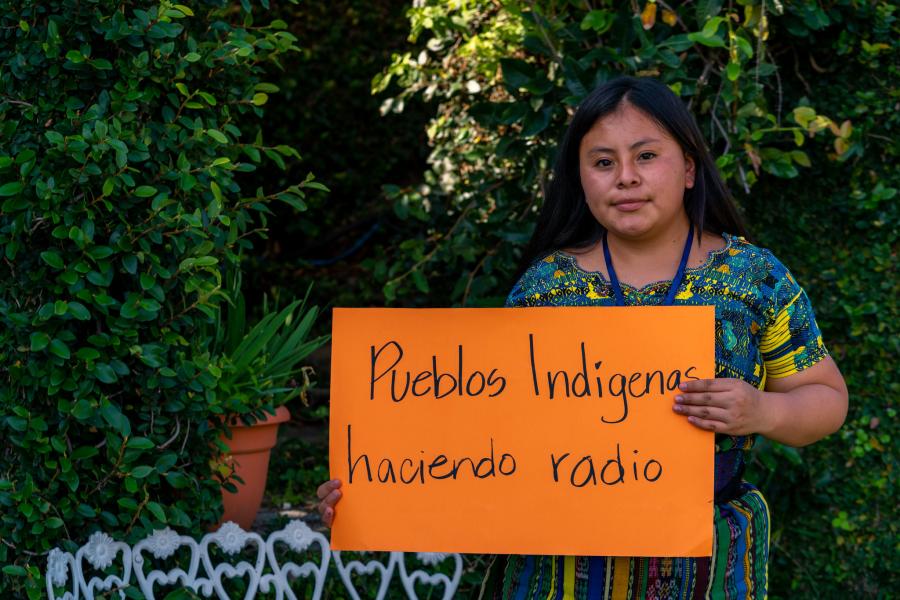
March 9-10, the Cultural Survival team completed our final of a series of exchanges between 12 community radio stations here in Guatemala. Three members of Radio San Jose arrived in the town of Palestina de los Altos, Quetzaltenango to meet with members of Radio La Voz de Palestina for the second of their pair of visits. When we arrived in Palestina, the whole team hopped on the back of Samuel Gomez’s pickup truck, the founder of 14-year-old La Voz de Palestina, and headed to his house where the exchange was held.
The beauty of this exchange was in the pairing between the two stations. Radio San Jose is one of the most organized and efficient radio stations in our network. It is run by experienced teachers with a clear sense of purpose and drive. By contrast, Radio La Voz de Palestina has the participation of close to 80 youth, but lacks a sense of direction and organization.
[[{"fid":"61587","view_mode":"media_original","type":"media","attributes":{"height":2848,"width":4272,"style":"width: 400px; height: 267px; ","class":"media-element file-media-original"}}]]
Samuel Gomez, founder of Radio La Voz de Palestina, telling their story to the group.
When we arrived in his home, Samuel Gomez told the story of the founding of Radio La Voz de Palestina, 14 years ago. He recounted stories of hard times and triumphs, and concluded by explaining the current state of the station. The station has the participation of more youth than any other station, but lacks leadership and many of the young members lack the confidence and drive to create programs and participate on the air.
Roelio Fuentes, one of the directors of Radio San Jose, spoke on the importance of overcoming shyness, improving self-esteem, and taking pride in Indigenous heritage to the youth in attendance. He explained how avoiding public speaking and community projects hinders one’s development and limits success. Then, he spoke about using the community radio station as a tool for increasing self-confidence and building leadership skills. His speech was powerful and inspiring, with thoughtful strategies on how to personally overcome these weaknesses, and how to help others overcome them as well.
Roelio and his team members, Silvino and Yener, continued to cover themes such as leadership, motivation, and integrity. They clarified the importance of these topics by tying them to the radio. Roelio stated, “you will be the leaders of La Voz de Palestina very soon, and it is important that you learn these skills so that you may be positive representatives of your community”. Yener explained, “you must stay true to the things that you say on the radio…if you speak about the importance of caring for the environment, you cannot throw your garbage in the street, you need to lead by example.”
The youth in attendance responded positively to these lessons. Lesvia, the president of the community group Youth of Palestina, shared a story about how she learned to stay true to her Mayan roots by finally learning to be proud to speak her native tongue and wear her traje or traditional dress. Alberto, a 14-year-old member of the station, described the station as the school where he learned to overcome his fears and stop thinking of himself as inferior. Two other youth described how they used to be terrified at the idea of speaking on the air, but now feel confident in their abilities to express themselves on the air and in public.
Finally, after lunch, the youth of Palestina demonstrated further interest in the wisdom of the members of San Jose by asking them questions about Mayan history and the 36-year armed conflict in Guatemala. Members of San Jose provided passionate accounts on these issues to the eager young members of Palestina.
[[{"fid":"61588","view_mode":"media_original","type":"media","attributes":{"height":2525,"width":3929,"style":"width: 400px; height: 257px; ","class":"media-element file-media-original"}}]]
This exchange provided a wonderful conclusion to a successful program. By pairing stations such that their weaknesses and strengths complemented one another, the stations learned far more from one another than they would have learned from larger workshops. The exchanges allowed stations to expand and improve their programming by sharing material and ideas; to gain usable knowledge on how to improve on deficits from stations that have overcome the same issues; and to create bonds that continue to strengthen commitment to the community radio movement. We hope to begin a new exchange program soon, allowing more stations to benefit from these horizontal-learning experiences.



